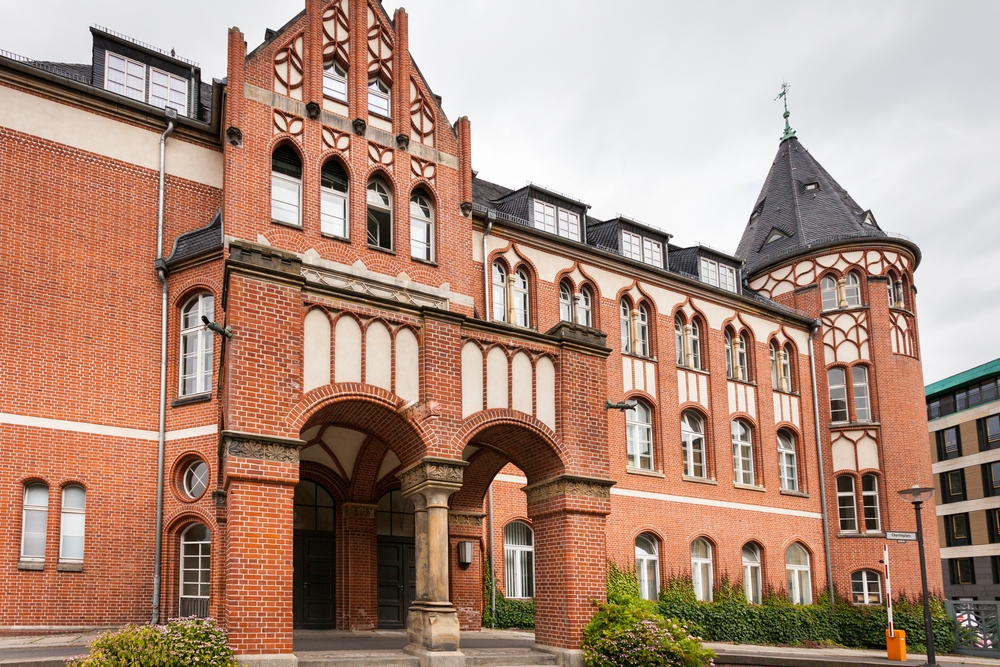
You will not receive a salary during your studies. You must be able to finance this independently.
☝️ The most important facts in brief
- Demanding degree programme with a standard period of study of 12 semesters
- The numerus clausus for human medicine is 1.0 almost everywhere in Germany
- High social skills and mental resilience are important prerequisites
- The degree programme is divided into a pre-clinical part, a clinical part and the practical year
- After the medical examination, further training to become a specialist can take place
📖 Table of contents
When studying human medicine, you will gain extensive knowledge about the human body, diseases, their causes, prevention and cure. Teaching at the university comprises a pre-clinical, more theoretical study programme and a clinical part. Medicine is a very demanding degree programme and future doctors are expected to be able to work under pressure.
Are you interested in studying medicine?
We will be happy to advise you free of charge about your options for studying medicine, including advice on studying medicine in another EU country, which is fully recognised in Germany.
This is what you can expect to learn in the Human Medicine degree programme
When studying medicine, future doctors should acquire the necessary skills and knowledge for their future work. In addition to teaching essential scientific principles, the focus is on the human body, how it works and, of course, on possible diseases and their treatment.
Practical experience is an important part of teaching and not only serves to prepare you for the medical examination, but also prepares you for your future work in the healthcare system. Medical students complete a pre-clinical and a clinical phase of their studies. Both together form a solid foundation for the profession you will later pursue.
The first stage of the degree programme
The first part of the degree programme in human medicine, known as the pre-clinical phase, teaches the basics of science and medicine. You will need this course content for all other areas of medicine. In courses such as chemistry, physics and biology, students acquire the basic knowledge required to understand complex diseases. Anatomy, physiology, biochemistry and medical psychology form the foundation and must be familiarised with before starting the course. Contact us with patients must be mastered. These teaching and practice units are crucial for being able to make well-founded decisions in medical practice later on.
The second stage of the degree programme
In human medicine, the second stage of study is known as the clinical phase. Here, students are given the opportunity to apply and deepen the knowledge they have learnt in practice. You now come into direct contact with patients in the clinic and gain your first experience in diagnostics and therapy.
Specialised subjects such as SurgeryInternal Medicine, Dermatology and Gynaecology are just as much a part of the teaching and seminar programme as dealing with questions of ethics and the healthcare system.
In addition to lectures, the comprehensive medical training programme also includes seminars and so-called clinical traineeships. These serve to gain practical experience in various medical specialities and a realistic insight into the work of doctors.
This is how studying at German universities works
At all universities that offer a degree programme in human medicine, the training procedures for students are similar. There may be a few differences here and there, but even in a model degree programme there is a whole list of requirements that must be adhered to in teaching.
The degree programme includes both theoretical knowledge and practical experience in the clinic. We will now show you how the path to your desired profession works, from the start of your studies to graduation, your doctoral thesis and possible qualification as a specialist.
Study time
The standard period of study at the Faculty of Medicine is 12 semesters. 4 of these are spent in the pre-clinical part of the programme, while the remaining 8 are spent in the clinical part. Together with the other students, you will learn everything you need to know about diseases and their treatment during this time.
The first state examination is taken between the pre-clinical and clinical sections. The second follows after the clinical part, and the third state examination concludes the degree programme after the practical year.
Practical year (PJ)
During the practical year, students work actively in the clinic and receive intensive support from the clinic staff responsible for teaching. The PJ is divided into three parts of 4 months each:
- Internal medicine
- Surgery
- A subject of your choice
The real patient allows you to scrutinise the status of your training once again and helps your development in an impressive way.
Doctoral thesis in human medicine
A doctorate is not mandatory for graduates to be able to practise medicine after successfully completing their studies. Nevertheless, many students decide to write a doctoral thesis and thus obtain the academic title "Dr med." and be allowed to use it in front of their own name. With such a title, you show that you have already dealt with research and are able to work scientifically.
A doctoral thesis at the Faculty of Medicine is usually less extensive than doctoral theses in law or philosophy, for example. The work required for a doctorate is therefore written by many students during their medical studies. However, the doctorate may only be awarded once the training and all examinations have been completed.
The specialist only follows after the actual degree programme
Once you have studied medicine and passed all state examinations, you can start a job as a junior doctor. However, in order to work completely independently and, in particular, to open your own practice, you still need to pass the specialist examination.
For this, it is necessary to have worked in different areas for a while. Obtain the necessary information in good time about which specialisms are required for admission to the specialist examination before you apply for a position after successfully completing your degree in human medicine.
Model degree programme as an alternative to traditional studies using the Charité as an example
There are ongoing endeavours to improve the quality of training in human medicine and to prepare students even more effectively for later professional practice.
One such model study programme is offered at the Charité in Berlin, for example. With its modern concept for human medicine, the medical faculty at Charité aims to ensure that the doctors trained there are even better able to care for the people who need them thanks to their particularly high level of psychosocial and professional expertise. Decision-making skills and a sense of responsibility are therefore specifically trained at this Charité faculty in the skills lab and in everyday clinical practice.
However, Charité is not the only pioneer in this field. There are similar degree programmes as well as degree programmes in medicine with other specialisations at other universities in Germany.

The Human Medicine degree programme in Austria
In Austria, the degree programme in human medicine also comprises 12 semesters, but ends with a diploma rather than a state examination. After completing the examinations, the trained doctors are authorised to use the title "Dr. med. univ." . However, this is not a scientific doctorate, for which an additional doctoral programme would be required.
Strict admission requirements at all universities in Germany
Places to study human medicine at German universities are allocated centrally by the Foundation for University Admissions. Places are rare: there are around 5 applicants for each place. In most federal states, a straight A grade is required to gain a coveted place. Medical study place to get.
Application and admission procedure for the Human Medicine degree programme
If you have the high Numerus Clausus of usually 1.0, you have the opportunity to improve your chances with a little effort. For example, you can take an aptitude test (for a fee), which will improve your A-level grade as assessed by the system. Professional experience and other qualifications also help to improve your chances.
Studying medicine abroad as an alternative
If studying at a German medical faculty doesn't work out despite intensive efforts, but you don't want to give up your dream, studying abroad can be a good decision. More and more people are choosing this path, as there are numerous universities where the quality of education is also high, but the entry requirements are lower than at the Charité, for example. If you are interested in this path, we have all the information you need.
Is human medicine the right degree programme for you?
A not inconsiderable number of students realise during their studies that human medicine is not the right degree programme after all. There can be many reasons for this. It is possible, for example, that it is not possible to learn the really large amounts of subject matter in a comparatively short time.
Another reason for dropping out of medical school can be psychological stress: it is not always possible to bring relief to the patient, and future doctors must inevitably learn to deal with death in a way that is easy on their own psyche.
Regardless of which specialism you would like to work in later on, or whether you want to work in research, you should therefore take a close look at the negative aspects of studying medicine. If you are sure that you are up to it, medicine is probably the right degree programme for you.
Other medical fields as an alternative to studying human medicine
If you ultimately decide against studying human medicine or do not get a place, but you would like to learn a profession in this field, the following degree programmes are among the options:
- Veterinary medicine
- Dentistry
- Pharmacy
These are also fields of study associated with recognising, treating and preventing health problems. However, just like medicine, these degree programmes are admission-restricted, meaning that not all applicants are guaranteed a place.
Free information material
Studying medicine abroad 🎉
Order your info pack now, find out more about the Studying medicine abroad and get started as a medical student!





